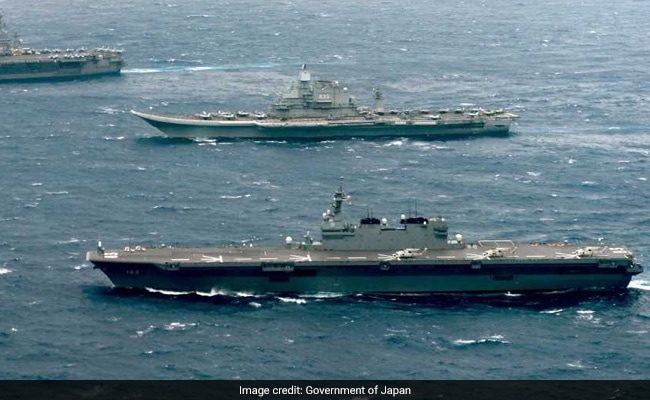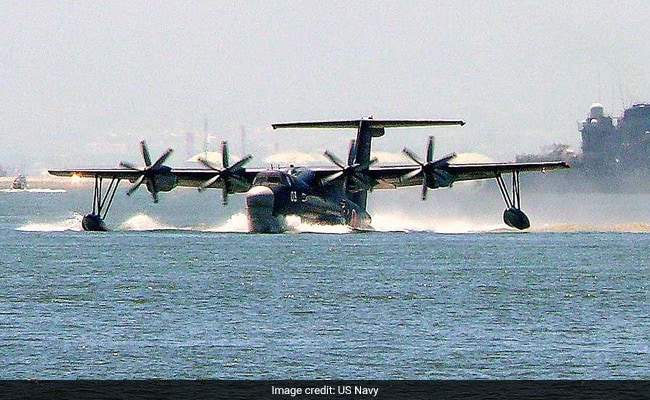
The expansion of military ties between the two countries comes during the visit of Union minister Arun Jaitley to Japan on his last trip as Defence Minister before he hands over the portfolio to his successor. Nirmala Sitharaman takes full-time charge of the Ministry tomorrow. While in Japan, Mr Jaitley visited a Japanese Navy base and 'flew' a Japanese P-1 aircraft simulator.
The Indian and Japanese armies will plan joint anti-terrorism exercises for the first time next year.
Japan, which participated in the Malabar Naval exercises with the US and India in the Bay of Bengal this year, wants to step up its level of engagement in these war games by sending across its state-of-the-art P-1 anti-submarine warfare aircraft, the most sophisticated of its class presently operated by its Navy.
What's more, the navies of both countries will train together in anti-submarine warfare and anti-mine warfare exercises, which could see the India deploy its US-built P-8-I anti-submarine jets to Japanese naval bases for the very first time.

Aircraft carriers from India, Japan and the US participate at this year's Malabar Naval war games.
Both India and China have been keeping a close eye on the dramatic growth of the Chinese Navy, which has inducted dozens of new warships and submarines over the last five years.
India is concerned about the increasing presence of Chinese nuclear submarines in the Indian Ocean while China lays claim to the Senkaku Islands, a group of uninhabited islands currently controlled by Japan in the East China Sea.
Over the last few years, the navies of India, Japan and the United States have come together to form what is increasingly being seen as a Naval alliance, with an eye on the growth and expanded deployment of the Chinese Navy, which now has a logistics base in Djibouti in the Horn of Africa. All three nations have challenged China's claims to South China Sea, with each side stressing the importance of freedom of navigation in the disputed region.

Talks to acquire Japanese US-2 amphibious aircraft are back on track.
The deal for up to 18 US-2 aircraft, which can be used to monitor India's Exclusive Economic Zone in the Arabian Sea and the Bay of Bengal, could be worth approximately $1.6 billion.
Track Latest News Live on NDTV.com and get news updates from India and around the world

